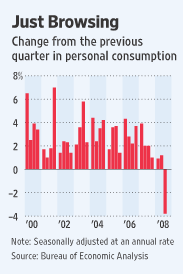A few weeks ago, a publicist with Oxford University Press kindly sent me David Bach's new book, The Finish Rich Dictionary, to review.
I've been a fan of David Bach for some time, since I read his book, The Automatic Millionaire. In fact, I could have sworn this was a book that I purchased at one time, as The Automatic Millionaire
presents personal finance concepts succinctly and in layman's terms. It is also incredibly motivating without being overwhelming or 'preachy'.
In addition to the Automatic Millionaire, David Bach writes the 'Finish Rich' series, including: Start Late, Finish Rich; Smart Women Finish Rich
; and Smart Couples Finish Rich
. I've only read the 'Start Late, Finish Rich' version, but it's another book that resonates with me and provided some additional motivation that led me to consider increasing my retirement savings.
Bach's latest book, The Finish Rich Dictionary, can be seen as a companion piece to any of his other books as well as to any other personal finance book, magazine or blog you may be reading. The book is filled with short, relevant definitions for many of the words we stumble across (and scratch our heads over) in the journey to financial independence. I know that I have tossed aside a book on investing more than once because I was frustrated by the terminology and the assumption that I have a degree in finance (which I most assuredly do NOT). An added bonus for me is that many of the words are defined along with their linguistic origin---I love languages, and learning that the word bankruptcy, for example, comes from the Italian banca rotta ("broken bench") is fascinating.
Having this book by my side will allow me the confidence to delve into the more in-depth discussions of IRA's, mutual funds, certificates of deposits or municipal bonds. In addition to defining various finance terms (and demonstrating common usage), Bach also inserts chapters devoted to brief discussion of topics such as:
- The Latte Factor
- Saving for retirement
- Determining if you have a credit card problem
- Becoming a homeowner
- Top ten personal finance mistakes people make
- How to choose a personal finance advisor
In reviewing this book, I read the personal finance chapters and the first few sections of definitions, while skimming the rest of the vocabulary chapters. I will say that I learned something within moments of opening this book: my second mortgage is set up for a 'balloon payment' in 15 years, something which wasn't fully explained to me when I signed the paperwork. I happened to notice this detail when I was taking a closer look at my bill, to see how much interest I pay versus principle. At the time I purchased my home in 2006, real estate values were still soaring and my loan officer probably assured me that I could refinance and obtain a standard 30 year loan before the balloon payment was due. In reading Bach's book, I learned the following about the definition of a balloon payment:
"A repayment of the outstanding principle sum made at the end of a loan period, interest only having been paid hitherto. Usage: Even though the terms may seem easier to meet, the borrower may not have the money required to make the large final payment."I pay a whopping $20 a month in principle on my 15 year balloon loan. Which means I'll still have a hefty sum to pay when (or if!) I make it to the final balloon payment in 12 years or so.
All in all, I find this book to be a worthwhile investment if you are someone who wants to increase your knowledge of personal finance, particularly if you find yourself avoiding more technical investment reading because the vocabulary is unfamiliar to you. This is not a book you will read from cover to cover in one sitting, but would be a wonderful resource to have by your side as you delve into some of the more complex personal finance topics.
As I have in the past, I would like to pass this book on to one of my readers (sort of a 'pay it forward' concept). With that in mind, I will mail a free copy of The Finish Rich Dictionary
Good luck!







